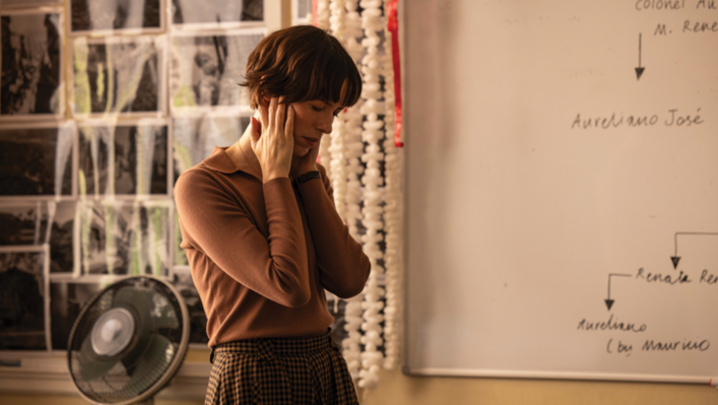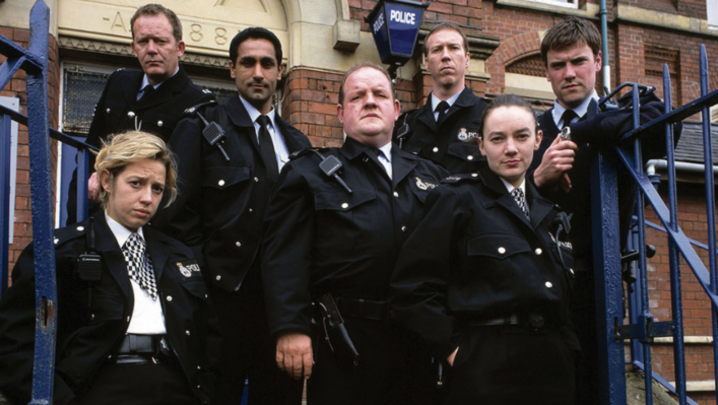Esther Rantzen recalls the toe-curling sexism she endured before establishing herself as one of the BBC’s most successful broadcasters.
It is staggering to think that, in the 1960s, one of Esther Rantzen’s first TV appearances in a trailblazing career was during a debate about whether a woman could ever read the news. “It took another 15 years before Angela Rippon read the BBC news in 1975, followed by Anna Ford on ITN in 1978,” she noted in her RTS London Christmas Lecture.
Now Dame Esther Rantzen registered a few TV firsts herself in the intervening 55 years. As she put it: “I was there when some of the glass ceilings were broken through. Indeed, some of the fragments are still stuck in my skull.”
Her captivating speech – often funny, always frank, and as eloquent as one would expect from a seasoned pro – offered a revealing, on-the-ground account of the workplaces she experienced before 1973, when she earned her rightful place as host of That’s Life!. It was a role she kept for the next 21 years. Along with Rantzen’s charity ChildLine, it helped her to become one of the most respected and trusted people in British broadcasting.
It was this reputation that led to the former BBC One controller Bill Cotton inviting her to apply for that very job in the 1980s, when he ran BBC Television. That she didn’t take it was the one regret of her career, she revealed: “I sometimes wonder whether the glass ceiling that we women complain about can be self-induced by our own built-in fear of failure. I might have been the first woman controller of that channel.
“I turned him down out of fear that I would fail.
“I knew it was a huge job, very time-consuming. I knew it would mean I could no longer chair ChildLine. My husband [the journalist and BBC head of features Desmond Wilcox] told me I would miss that, and I would miss programme-making because I’d certainly also have had to abandon my first baby, That’s Life!
“In the series of That’s Life! that followed me turning down that offer, we investigated a school called Crookham Court, which was owned by a paedophile, who employed paedophile teachers. So it was an important series, but… the main reason, the one I didn’t admit to, was fear of failure on my part. What a wimp.”
The decision wasn’t easy to make. Rantzen admitted that she entered Cotton’s office with two envelopes in her handbag, “and I didn’t know which one I was going to pull out. One of them said, ‘How lovely, thank you so much’, and the other one said, ‘How kind, but no’. I put my hand in that handbag and I pulled out the ‘How kind but no’.
“I think Desmond was right about me, that I love the stuff of programme-making. I love the immediate communication with viewers. I love the challenge of getting the story right.
“Also, it occurred to me recently that there are some people who are very good performers and communicators who should never go into management. Management means that you’ve got to see whether someone two doors down is having a party against the rules, doesn’t it?” she said, taking a swipe at controversial Downing Street Christmas parties recently revealed to have been held during lockdown. “It means that you’ve got to make sure that you are following the rather annoying detailed regulations, and that isn’t the same as being a terrific communicator.”
The journey from studio manager to candidate for BBC One controller was beset by systemic misogyny. “Women’s role in television was to be a handmaiden,” Rantzen recalled. “We made the tea, the coffee, typed the letters, made the research calls, but never directed a crew.”
When she started, decades before the #MeToo movement, “we female studio managers were browsed upon by directors and actors and contributors,” she said. “It wasn’t violent or frightening. I just brushed them off like midges or occasionally let one settle and bite.”
Rantzen paid tribute to those who supported women and helped her rise through the ranks, such as Joanna Spicer, Ned Sherrin, Tony Whitby – and, of course, her husband, Wilcox. “Talented women from all over the BBC sought refuge in his department, where at last they could work on equal terms and were given the opportunities they deserved,” she said.
But never one to shy away from telling her truth, she also gently noted those who stood by the order of the day, such as [head of BBC TV news and current affairs] Grace Wyndham Goldie (“Yes, ladies, women can be misogynist”) and Nationwide editor Michael Bunce, who went on to run the RTS.
Derrick Amoore, the last editor of current affairs programme Tonight, was “one of the brilliant young men at that time” but one who told her, “– and you’ll have to forgive me if his words offend anyone – ‘Your problem is, Esther, that I like working with people with bits that stick out and I don’t understand people with holes.’ Pretty memorable, you must agree.”
Time has had little effect on Rantzen, who most recently presented the podcast That’s After Life!, and hosts a weekly show with her daughter Rebecca for BBC Radio London. She spoke of feeling 28 rather than nearly 82, and there’s certainly no apparent diminution in her vivacity.
On the barriers faced by women in TV today, she noted that “no selfrespecting producer or editor would think of creating a programme without women in it or ethnic minorities and people with disabilities and every sexual taste and size and shape. Just have a look at Naked Attraction if you doubt me. Although I’m still waiting for my invitation to the celebrity version of that.”
Yet equal pay remains inconsistent, and “you still won’t find a woman over the age of 60 reading the news, so that’s still a barrier to cross”.
There is also the issue of listening to women when they speak out – which is why the way Martin Bashir obtained his Panorama scoop shouldn’t, she argued, negate the content of his interview with Diana, Princess of Wales. “I’m concerned now about the way Diana has been portrayed as having such fragile mental health that she told Bashir things she would never have said if he hadn’t frightened her into it,” said Rantzen. “I’m sure that when she gave that interview she knew what she was doing because she’d already said those things in the book she dictated three years before the Panorama interview. I believe she was absolutely determined to tell her side of the story against, for instance, the advice I know she was given by her friend [the late writer and broadcaster] Clive James.
“To me, as a woman, Diana is still the victim of the sexism and prejudice that means that what she actually said about her life is being dismissed, and there are now attempts to lock away the interview that she was determined to give. In our haste to blame Bashir, let’s not silence her this long after her tragic death.”
Storytelling has been at the centre of Rantzen’s journalism. She reminded documentarians and presenters to keep their subjects and their stories at the heart of their work, especially when it involves those who lack a voice.
While the internet can help to disseminate information, social media’s inability to always distinguish between truth and falsehood leads to problems, she explained in her conclusion: “We have got to demand protection against these lies. We’ve got to make sure that journalism hangs on to ethical standards.
“We must find ways to detect and prohibit attempts to fudge the truth. Except that maybe we should invent a new filter for cameras to eradicate wrinkles,” she said with a smile. “That will do wonders for old ladies on our screens. Maybe then they’ll be allowed to read the news.”
Report by Shilpa Ganatra. The RTS London Christmas Lecture was given by Dame Esther Rantzen on 9 December. The producer was Phil Barnes.







